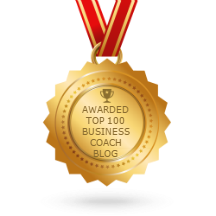 Sir John Whitmore is a pre-eminent thinker in leadership and organisational change and works globally with international organisations and leading multinational corporations to establish coaching management cultures and leadership programmes. He has written five books on leadership, coaching and sports, of which Coaching for Performance is the best known having sold 500,000 copies in 17 languages. He is also the former British and European motor racing champion and the Executive Chairman of Performance Consultants.
Sir John Whitmore is a pre-eminent thinker in leadership and organisational change and works globally with international organisations and leading multinational corporations to establish coaching management cultures and leadership programmes. He has written five books on leadership, coaching and sports, of which Coaching for Performance is the best known having sold 500,000 copies in 17 languages. He is also the former British and European motor racing champion and the Executive Chairman of Performance Consultants.
I interviewed him recently on the role of coaches and leadership in the changing business and economic environment.
1) You have been in this field longer than most, what are some trends you have witnessed in the last few decades which impact on coaches/coaching?
The popularity and breadth of reach of workplace coaching has grown enormously as has the understanding of what coaching is – as compared to sport coaching, for example. On the other hand, as more coaches have come into the market, some are poorly skilled and some seem to be in it only for the money, but that is perhaps inevitable. Both in the private and the public sectors, application ranges from one to one executive coaching to the collective adoption of the principles of coaching as a management style.
2) What changes do you anticipate will occur in business/organizations and society in the next 3 – 5 years that will create opportunities for coaches?
The economic down-turn and the environmental crisis create opportunities for coaches to facilitate organisations to find new and innovative solutions to new problems. Social uncertainty causes more people to seek for meaning and purpose in the workplace and to question the gap between their personal values and those of their company. Corporate corruption, consumerism and even capitalism are coming into question.
3) How, specifically, do you think coaches can capitalize on these opportunities and what skills, abilities and behaviours do coaches need to develop in order to be most effective in doing so? 4) How would you suggest the coaching profession further its development in order to more effectively be seen in the marketplace as an effective partner for business and or social development?
Coaches will be expected to have more psychological experience and transpersonal (spiritual) techniques available to enable them to help with deeper life issues. Whereas coaches by nature do not give advice on in-house workplace issues, they would benefit from a broader understanding of economic, environmental uncertainties and the growing social dissatisfaction in the context within which organisations find themselves. Without such knowledge their ability to ask relevant and useful questions may be limited.
5). What advice would you give to a coaching user who wants to use coaching as a way to maximise his/her area of development e.g., life, business, organisation, employee engagement, impact on the world?
Choose your coach with care and check their skills/qualifications and their breadth of life experience. Contract for a series of say 6 – 8 sessions at a time, but be willing to select a new coach if the relationship does not flourish. If coaching is being adopted as a management style, commitment, on-going support and role modelling from the top is essential.
6). What do you see as the large roadblocks for coaches in the current marketplace and what would you suggest they do to surmount them?
When money gets tight, coaching and training are among the first things to be put on hold. To hold their ground and their contribution value, coaches need to be up to date with current issues and trends.
7) What makes a great leader?
Most so-called leaders in the corporate, political and public sectors are high on knowledge (quantity) and low on wisdom (quality). Knowledge is acquired from outside, from universities and business schools, and some by experience. Wisdom is a product of evolutionary personal development – and coaching – and is acquired from within, from the heart and soul. It is in very short supply right now and this accounts for many of the huge social, economic and environmental challenges that we face.
8) What message do you have for coaches working in the leadership/executive development area?
Coaches must increase their capability to coach on deeper issues, on evolutionary development, on shedding obsolete social, cultural and religious conditioning, beliefs and attitudes to allow self-discovery, universal values and whole system thinking to become the guiding themes. Collaboration as opposed to competition is the only sustainable way forward, and this is a great challenge to coaches and leaders who may be unwittingly stuck in the old redundant selfish paradigm.
Thank you very much for your time and contribution, Sir John!






 Follow Jasbindar on Twitter
Follow Jasbindar on Twitter




5 Responses to Sir John Whitmore on Coaching, Leadership and Change